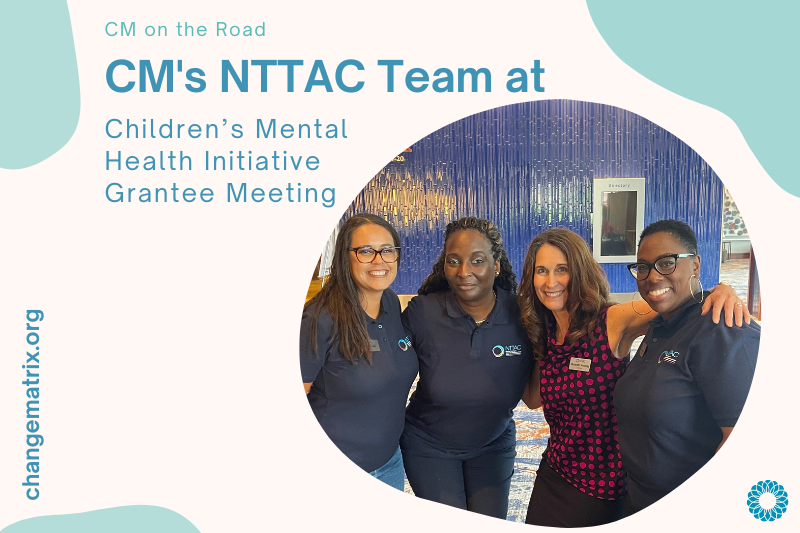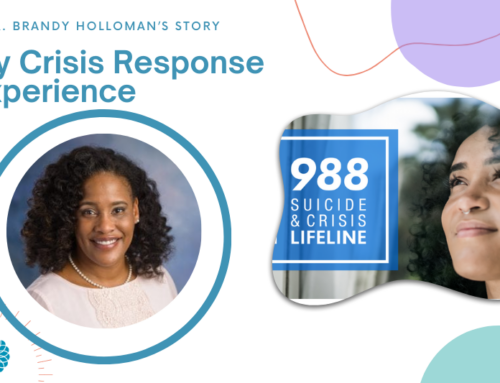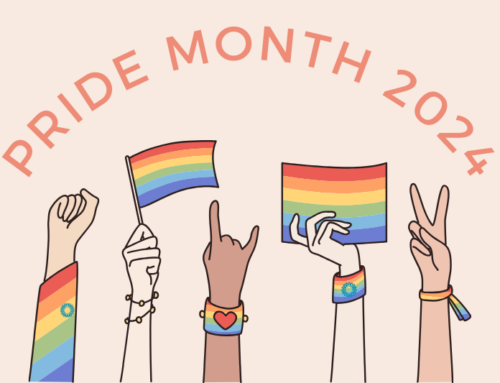“We’ve submitted to the harsh instinct to crush those among us whose brokenness is most visible. But simply punishing the broken- walking away from them or hiding them from sight- only ensures that they remain broken, and we do, too. There is no wholeness outside of our reciprocal humanity.” – Bryan Stevenson, Just Mercy: A Story of Justice and Redemption
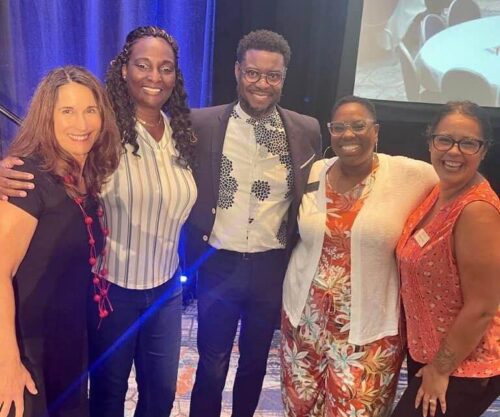
From left to right: Elizabeth Waetzig, Tonicia Freeman-Foster, Judge Everett Mitchell, Ghia Kelly, and Evelyn Clark
This quote was featured by Judge Everett Mitchell (of Madison, WI) in the closing keynote of The National Training & Technical Assistance Center for Child, Youth, & Family Mental Health (NTTAC) Children’s Mental Health Initiative Grantee Meeting. After years of inability to come together in person, NTTAC hosted this gathering of System of Care (SOC) grantees in Baltimore, MD from July 12-14. SOC is a framework for collaborative and coordinated care across communities to support the mental health of children, youth, and their families. SOC includes a focus on philosophy, infrastructure, and services. The philosophy is that system change is family-driven, youth-driven, equitable, and community-based. The infrastructure is based upon partners in systems and organizations across the community coming together to truly collaborate in building a coordinated and shared system that includes a broad array of services. The evolution of system of care includes a public health approach to mental health, primary care and mental health care integration, peer support, and a quest for health equity.
CM, an organizational partner of NTTAC, participated in designing the agenda, identifying speakers, opening the event, leading workshops, and moderating sessions. CM’s NTTAC project team — Elizabeth Waetzig, Evelyn Clark, Dr. Ghia Kelly, and Dr. Tonicia Freeman-Foster — felt invigorated seeing leaders show up to better serve youth and families within SOCs.
“[The meeting] inspired us to do things differently for youth, especially those of color with less access to services and, unfortunately, more access to the injustice system” says Evelyn Clark.
The Grantee Meeting focused on topics not traditionally discussed within SOCs, such as justice, equity, diversity, and inclusion; gun violence and its impact on Black and Brown youth; and supporting Black, Indigenous, and People of Color (BIPOC) youth and families. There was a continued theme of celebrating small and large successes, while simultaneously strengthening the approach to outreach and engagement with diverse and underserved youth, young adults, families, and communities.
CM had the honor and opportunity to attend and facilitate sessions during the Grantee Meeting, such as a dynamic panel with representatives of four family organizations on centering family voice in the system of care. The panelists were able to share about the work of their organizations, how they amplify the voices of families, and the “do’s” and “don’ts” of family engagement. Panelists answered questions related to justice, equity, diversity, and inclusion, and considerations for working with families from historically oppressed and marginalized groups.
“The panel was an awesome way to end the second day of the meeting and get grantees excited about engaging families in an authentic, equitable, and meaningful way!” says Dr. Ghia Kelly.
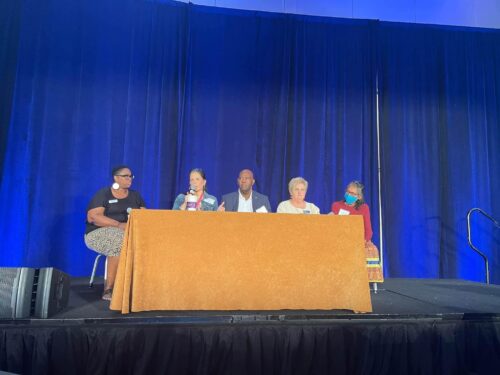
Ghia Kelly facilitating panel discussion
Ghia also had the opportunity to co-facilitate a courageous conversation on the topic of gun violence with Dr. Patricia Bamwine from the University of Tennessee, offered at the request of grantees. The session featured information about the SOC Model and its connection to gun violence, research and a case study related to gun violence and its impact on youth and family well-being, and strategies that can be employed to address gun violence in communities. The session concluded with an open dialogue with grantees where they were able to share their experiences supporting youth impacted by gun violence and ask questions.
Overall, this summit was a time to connect and take action moving forward in the work. Unfortunately, too many young people and families are still not connected or engaged with mental health services. As a result, the disparities in wellness, access, and mortality persist. The next steps must be innovative actions and partnerships that are informed and led by diverse youth, young adults, and communities. Diversity attracts diversity.
“Grantees expressed that it felt good to be in community with one another again; grounded themselves in Systems of Care — the evolution; and participated in sessions including those mentioned above,” says Elizabeth Waetzig.
Based on the grantees’ feedback and participation, there is an overarching collective agreement and passion for making this a reality.
“This makes me hopeful, and I look forward to supporting the grantees through our NTTAC technical assistance services, resources, and live learning opportunities,” says Dr. Tonicia Freeman-Foster.
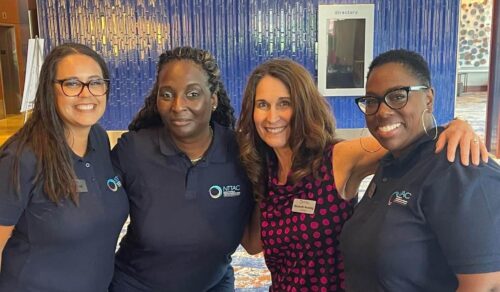
CM’s NTTAC Team poses for group photo
